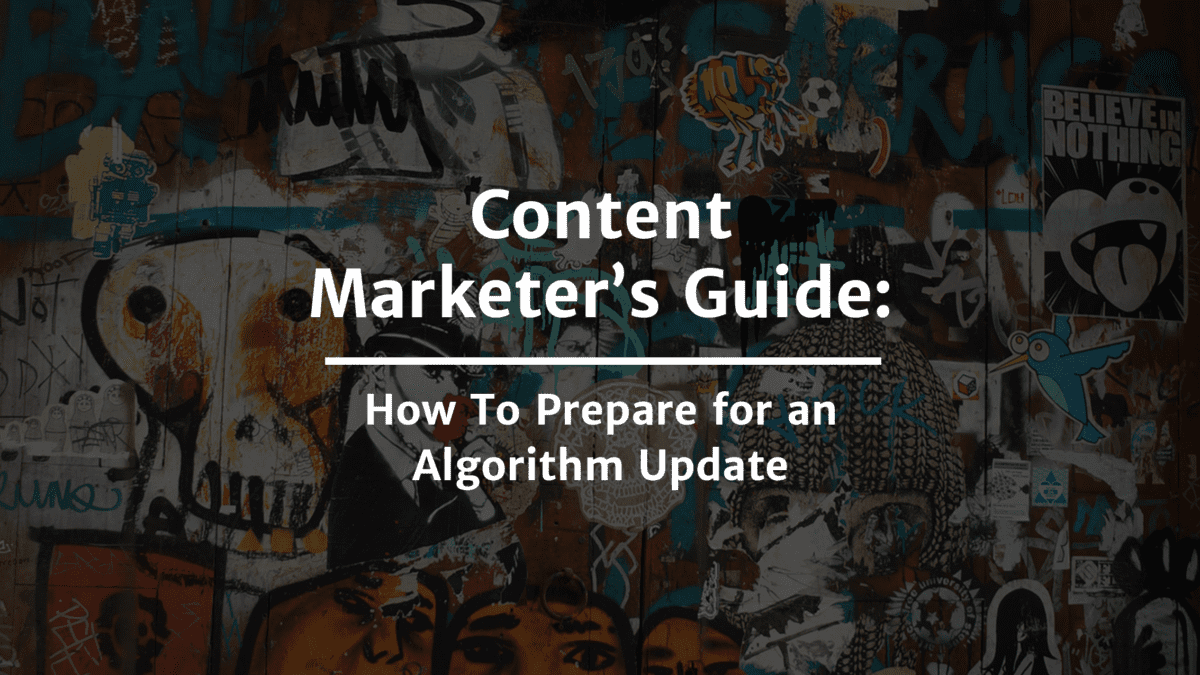Please note: this article contains affiliate links to tools we use and love and we may receive a commission if you click through and make a purchase.
Algorithm updates happen on a regular basis. If you want to stay competitive and generate more conversions with your website, you must ensure that your search engine optimization (SEO) strategy is always up to date.
However, preparing for these algorithm updates is a constant struggle.
When Google released updates such as Panda and Penguin, SEOs scrambled to adjust their strategies to keep up with the changes — just as they’ve been doing since the search engine announced its helpful content updates in August and December 2022.
As a business owner or SEO professional who wants their website to remain competitive in an ever-evolving SEO landscape, how do you prepare for such updates?
In this guide, we’ll discuss what the latest algorithm updates mean for your website and how you can prepare for them.
Google Algorithm Updates 101
A Google algorithm update modifies how Google ranks websites in its search engine results pages (SERPs), impacting websites’ visibility and organic traffic.
Keep in mind that while Google never shares all of an update’s ranking factors, they do often share the most important factors. So it’s vital to pay attention to the information the search engine shares — especially when an algorithm update is on the horizon.
There are hundreds of factors that can impact your search rankings, but some of the most important include:
- Meaning of your query: Google wants to give searchers what they want. When you answer users’ queries, you give Google a good reason to rank your content higher in search results.
- Relevance: The search engine interprets what keywords searchers enter and considers the relevance of webpages to determine rankings in search results.
- Content quality: Google wants to give users the most authentic and accurate information. As such, it prioritizes content it deems most helpful by determining the content’s authority, freshness, and trustworthiness.
- Webpage usability: Google tends to prefer ranking webpages that are easy to use and navigate.
To sum it up, Google’s goal is to serve the most relevant and useful information to its users. It updates its search algorithm regularly to stay true to that. And by understanding its ranking factors and following its best practices, you can meet that goal on your end.
How To Prepare for an Algorithm Update
- Research what the latest update is about
- Don’t make drastic changes to your content strategy right away
- Look for patterns
- Don’t panic (yet)
- Stick with Google’s guidelines
- Consult with SEO experts
Algorithm changes can be unpredictable. You never know when they’ll happen or how they’ll affect your search presence unless Google explicitly gives a heads-up.
But with proper preparation, you’ll have a much better chance of riding out the changes and might even benefit from them.
Let’s go over a few things you can do to prepare for an algorithm update.
1. Research What the Latest Update Is About
Check primary sources of information first — like Google Search Central. By taking advantage of this resource, you can get the latest information about algorithm changes and how they might affect your website.
When Google released its December 2022 helpful content update, Google Search Central’s help page provided useful information about what the update meant for content creators and publishers and how to optimize for it.
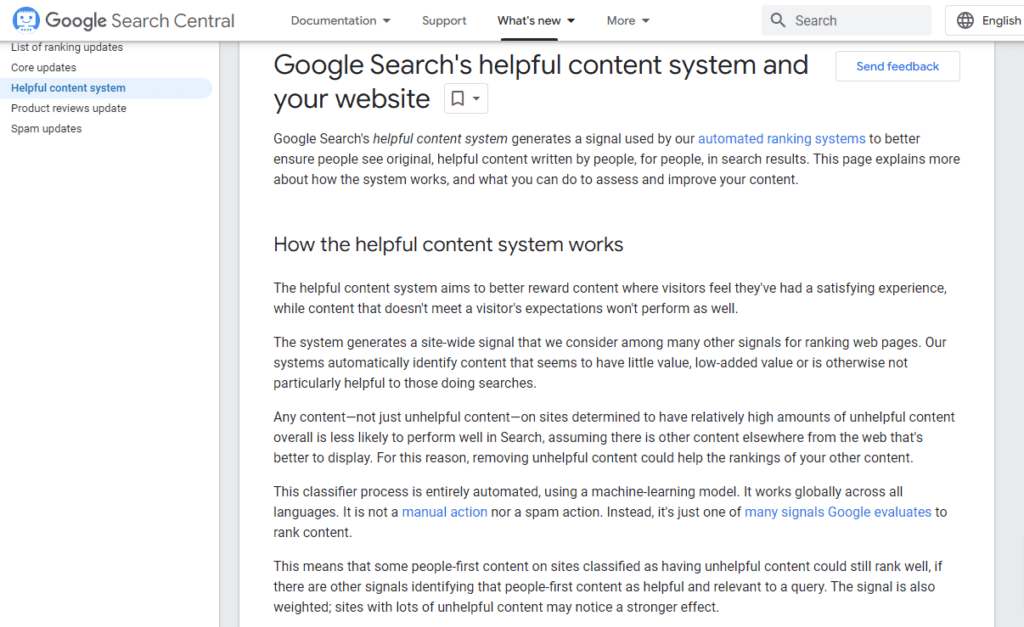
If you’re looking for up-to-date industry-specific insights into the impact of algorithm changes, keep an eye on Search Engine Roundtable. Barry Schwartz and his team always stay ahead of the curve with their comprehensive coverage and analysis.
If you have questions about the impact of an algorithm update (that weren’t answered by official sources), Search Engine Roundtable is the go-to source that may be able to provide some answers.
You might also want to check what John Mueller, Google’s Senior Webmaster Trends Analyst, says when there’s an update. He talks about major algorithm updates and provides more insight into what’s going on behind the scenes.
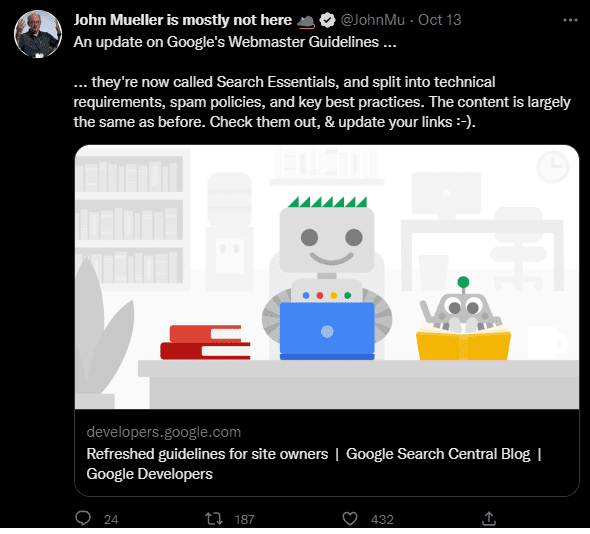
2. Don't Make Drastic Changes to Your Content Strategy Right Away
In most cases, a website’s ranking signals balance out and recover on their own in the days or weeks following an update. The best way to approach these situations is to take a step back and assess your website’s overall health.
If you find problems with your website’s structure, design, and content, it might be time for some major changes. But if everything looks fine, there’s no need to panic and make drastic adjustments to your SEO strategy right away.
3. Look for Patterns
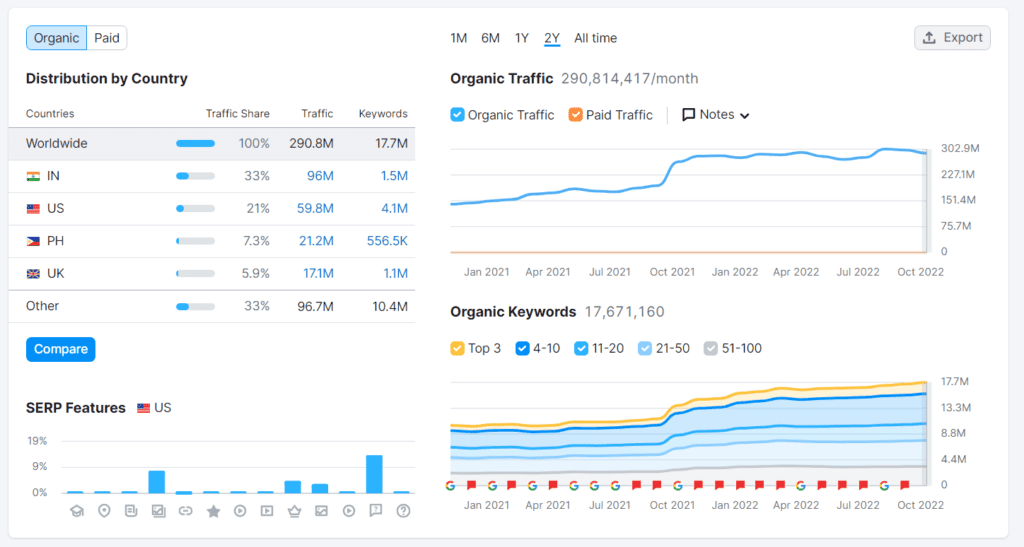
If you don’t find any clear pattern, try tracking changes using different time frames, like a week or month, and see if anything stands out.
Check out your competitors. Better yet, use competitor analysis tools to determine their performance in the SERPs following an algorithm update.
Did the same Google update affect them? What did they do differently? If so, what can you do to get ahead of them? Is there something they’re doing better than you?
Once you see a pattern, you can adjust at scale instead of only looking at impacted pages.
For example, if posts without images are getting tanked, you can use this as an opportunity to add images and visuals to those webpages.
4. Don’t Panic (Yet)
If you feel that a major algorithm update is happening soon, freaking out is the last thing you want to do. Unless you’ve been practicing unethical SEO (previously called “black hat SEO”) tactics, your website is probably safe from any major changes.
Ranking fluctuations happen for many reasons, not necessarily because you’re doing something wrong. It could be as simple as a seasonal drop in search volume, or Google might be testing out changes behind the scenes. Seasonal changes fade, and Google tests don’t always become permanent.
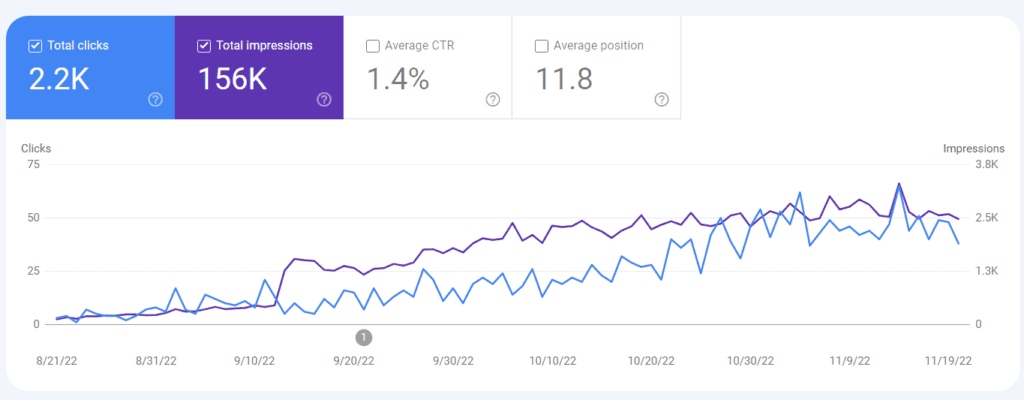
If you’re feeling the urge to panic and overhaul every page on your website, take a deep breath and remind yourself: SEO is a long game.
5. Stick With Google’s Guidelines
So if making drastic changes isn’t a good idea (or at least not yet), what should you do?
One of Google’s representatives offered direct advice in the September 2022 edition of Google Search Central’s SEO office-hours:
“If your site has dropped in rankings after an update, follow our general guidelines for content. Take a look at how you could improve your site as a whole, both from content and user experience perspective, and you may be able to increase your rankings again.”
So if a new algorithm update rolls out, give it a few weeks before making any changes. If previous updates are any indication, it usually takes that long before you can feel the full impact of a major update.
Rankings typically stabilize in time. If you’ve been dedicating yourself to providing an exceptional reader experience, there should be no real cause for worry.
Focus on publishing content your target audience finds useful and engaging. Make your website easy to use. If you do those things well, Google may reward you with higher rankings in the SERPs — whatever update comes next.
6. Consult With SEO Experts
If keeping up with algorithm updates becomes overwhelming, consider getting help from SEO experts. A professional SEO agency will be able to keep up with Google’s changes and ensure your website is optimized in line with the latest standards.
That said, you need to choose the right SEO agency to get the results you want. Do your research and seek out SEO agencies that are actively engaging in conversations about the newest developments and staying ahead of the curve.
SEO changes frequently. If you work with agencies that remain entrenched in outdated practices, you won’t be able to capitalize on the latest SEO strategies, and your website would suffer from ranking drops as a result.
For a reliable SEO and content agency that puts your interests first and helps you speak to your desired audience, check out The Blogsmith. We help craft content your readers want to read till the end.
Here’s a video we sent to our clients in light of Google’s core and algorithm updates in fall 2022:
Best SEO Practices To Stay One Step Ahead of Every Algorithm Update
You’ve taken proactive measures to be better prepared for any algorithm updates. But that doesn’t mean sitting back and relaxing — you need to stay one step ahead of every algorithm update.
Here are some best practices to keep your website competitive in the ever-changing landscape of search engines:
Create People-First Content
Your content should demonstrate expertise and deep knowledge about a topic while also being easy to read and understand.
You can follow SEO fundamentals to help Google understand the content, but create content for real users, not search engines. For a more in-depth guide on how to create SEO-optimized content that appeals to human readers, check out The Blogsmith Founder Maddy Osman’s book, “Writing for Humans and Robots: The New Rules of Content Style.”
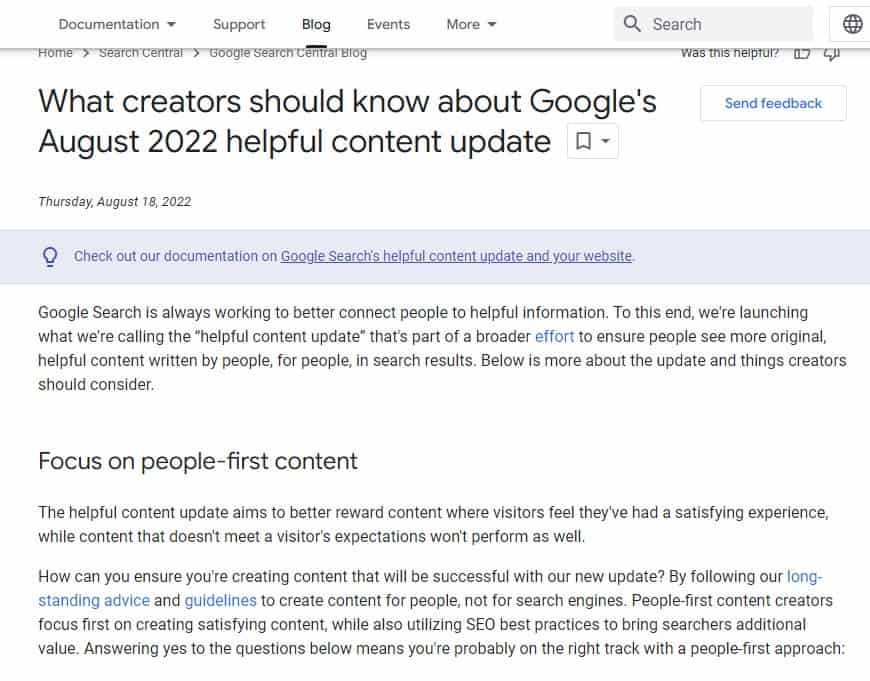
Use Keywords Relevant to Your Business
In the past, you could mention “running shoes” a hundred times in an article and earn the top spot for that search query. Those days are done, and we’re all the better for it.
That said, optimizing your content for relevant keywords is still a sound digital marketing strategy as long as you weave those keywords naturally into your content.
You can find the keywords your customers are entering to find a solution to their problem by using keyword research tools like Ahrefs and Semrush.
However, there’s more to keyword research than just finding out what words and phrases your target audience is using. The Blogsmith offers advanced keyword research for this reason. By understanding your target market, we develop a comprehensive keyword strategy that gives you the best chance at ranking.
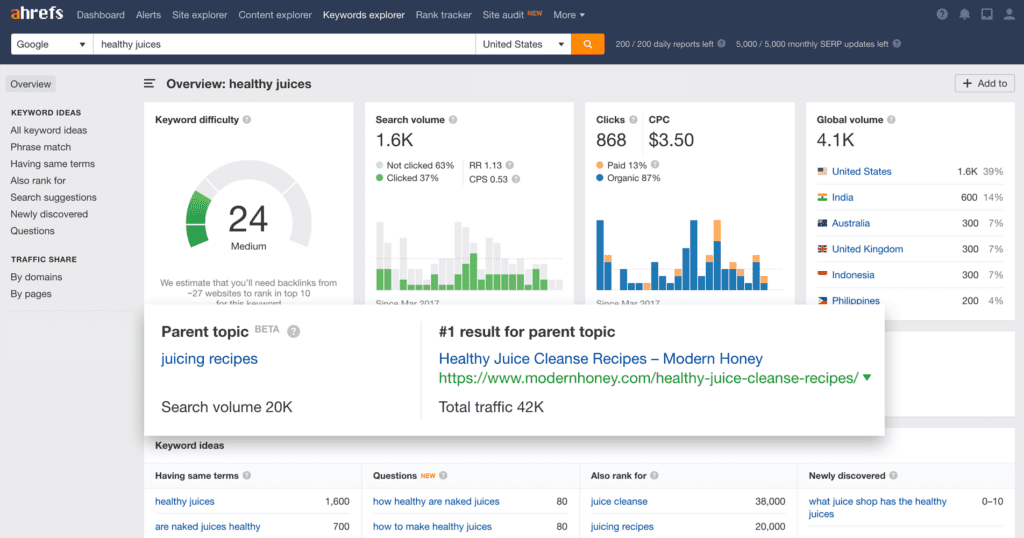
Include those relevant keywords in your meta tags, page headings, meta descriptions, and alt tags. This will help Google understand your website and make it easier for your target audience to find you.
There are other ways to help Google make sense of your website and its contents, which we’ll cover in a later section of this article — so keep reading!
Demonstrate Authority and Expertise
To rank well in Google, you need to establish yourself as an authority in your niche. This means having a strong online presence, coming across as an expert, and building trust with your audience through authentic, relevant, and helpful content.
To do so, stop regurgitating information from other sources.
Instead, provide your unique perspective and analysis. Alternatively, interview subject matter experts and use their insights to make your content more useful and unique.
Provide a Streamlined User Experience
How your pages look and function is just as important as what you publish. You want to ensure your site loads quickly, is easy to navigate, and has a clean design that appeals to your target audience.
According to Google Search Central, you can deliver a good user experience in Google Search by satisfying “page experience signals.”
These signals include:
- Core web vitals (loading, interactivity, and visual stability)
- Mobile-friendliness (responsive design and fast page speed)
- HTTPS (website security)
- No intrusive interstitials (content accessibility)
Build Trustworthy Links
Links are considered one of the most important ranking factors in Google’s algorithm. The more quality links you have pointing to your website, the more likely Google will consider it credible, relevant, and trustworthy.
Want to get backlinks? Create relevant and useful content that readers will naturally link to and share. And then, you can get even more backlinks by implementing a link-building strategy.
For instance, you can pitch your content to influencers in your industry, guest post on relevant blogs, or join a niche forum and share your expertise there.
Alternatively, you can create valuable content people want to share and link to. Think surveys, reports, and infographics.
Have an Optimized Site Structure
The better your website structure, the better your chances of getting good rankings. The best way to improve your website structure is by opting for an easy-to-navigate hierarchy that both robots and readers can follow.
To help robots, you can further create a sitemap using a WordPress plugin like Simple Sitemap or one with a sitemap generation tool like All in One SEO.
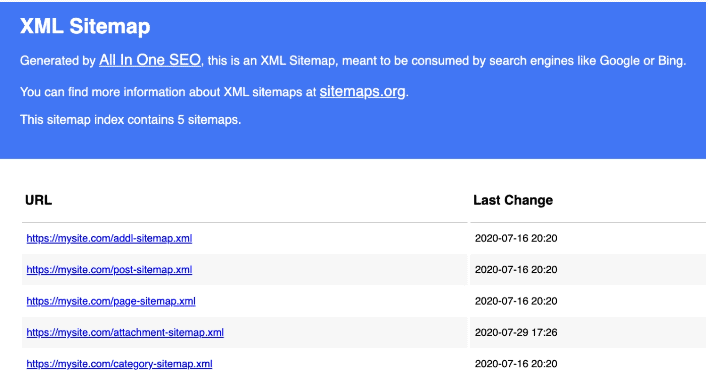
Optimize Your On-Page Content
The goal of on-page optimization is to ensure that Google knows what your website is about and how its pages are connected.
On-page SEO involves the following steps:
- Optimize your titles to attract both humans and SEO bots
- Write meta descriptions that drive clicks and conversions
- Create unique, high-quality content
- Use relevant keywords in the headings of your pages
- Optimize your images by using alt tags, captions, and image titles
To ensure you benefit from all the optimization opportunities, use an on-page SEO checklist.
Final Thoughts: How To Prepare for an Algorithm Update
Tracking what each Google algorithm update means for your content marketing strategy can be difficult, but it also presents opportunities for your business.
With a solid understanding of how Google works, you can navigate the changes and use them to your advantage. If you need help maintaining a healthy website and staying on top of Google’s algorithm changes, get in touch with us today.

